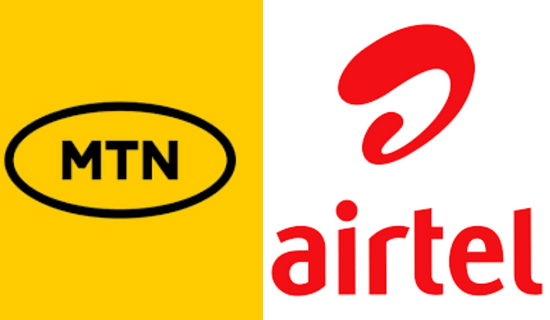In the bustling landscape of the Nigerian Stock Exchange (NGX), two foreign telecom giants, Airtel and MTN, have become towering figures, casting a shadow over the nation’s economic sovereignty. The undeniable fact stands – these Indian and South African companies jointly command ₦14 trillion slice of the Nigerian economy, positioning themselves as dominant players in the nation’s corporate hierarchy.
Airtel, hailing from India, holds the crown as the biggest company on the NGX, while MTN, a South African telecom giant, claims the respectable third-largest spot. These two foreign entities have seamlessly woven themselves into the fabric of Nigeria’s economic landscape, becoming key players in shaping its financial destiny. However, a glaring disparity remains – no Nigerian company has managed to secure a spot among the top 100 largest firms on the Indian and South African bourses.
Join our WhatsApp ChannelThe economic implications of this asymmetry raise critical questions about Nigeria’s path to prosperity. The amount of approximately $20 million leaving the Nigerian economy for India and South Africa daily paints a vivid picture of what some perceive as an economic invasion. While Airtel and MTN thrive in Nigeria, the flow of capital is skewed, benefitting their home countries at the expense of the Nigerian economy.
READ ALSO: MTN, Airtel, Others To Bar Sim Not Linked To NIN By February 2024
The economic relationship appears one-sided, prompting concerns about the Naira’s ability to appreciate when significant portions of the nation’s wealth are funneled abroad. The question looms large: Can Nigeria truly achieve economic independence when two foreign entities exert such considerable influence over its financial landscape?
Critics argue that this scenario is a self-inflicted wound, highlighting how Nigerians, with their own hands, have propelled Airtel and MTN to economic dominance. The plea is simple yet powerful – for the Naira to appreciate, the nation must redirect its allegiance and economic support toward homegrown companies.
A vocal faction within Nigeria advocates for a transformative move: a mass exodus from Airtel and MTN services, replacing their SIM cards with those of local telecom companies like Glo. The rationale is clear – by diverting consumer loyalty and capital toward indigenous businesses, the nation can begin to reclaim control over its economic destiny.
The call for a SIM card revolution isn’t just about economics; it’s about national pride and a vision for a self-sufficient Nigeria. Supporters of this movement argue that until Nigerians collectively decide to sever ties with these foreign telecom giants, the dream of a Naira that appreciates will remain elusive.
However, the proposed solution is not without its challenges. Airtel and MTN have ingrained themselves deeply in the daily lives of Nigerians, providing essential telecommunication services and connectivity. The task of convincing the populace to abandon these familiar services in favor of alternatives poses a formidable hurdle.
The economic invasion, as some characterize it, reveals a complex dilemma. On one hand, Airtel and MTN contribute significantly to Nigeria’s telecommunications infrastructure and provide vital services to the population. On the other hand, the drain of resources from the country raises concerns about the nation’s economic resilience and self-sufficiency.
In conclusion, the story of Airtel and MTN’s dominance in Nigeria unfolds a narrative of economic dependence and a call for reevaluation. Whether Nigerians will rally behind the idea of discarding their foreign SIMs in pursuit of a stronger Naira remains to be seen. The debate on economic sovereignty continues, with the fate of the nation’s currency hanging in the balance.
Emmanuel Ochayi is a journalist. He is a graduate of the University of Lagos, School of first choice and the nations pride. Emmanuel is keen on exploring writing angles in different areas, including Business, climate change, politics, Education, and others.



















Follow Us